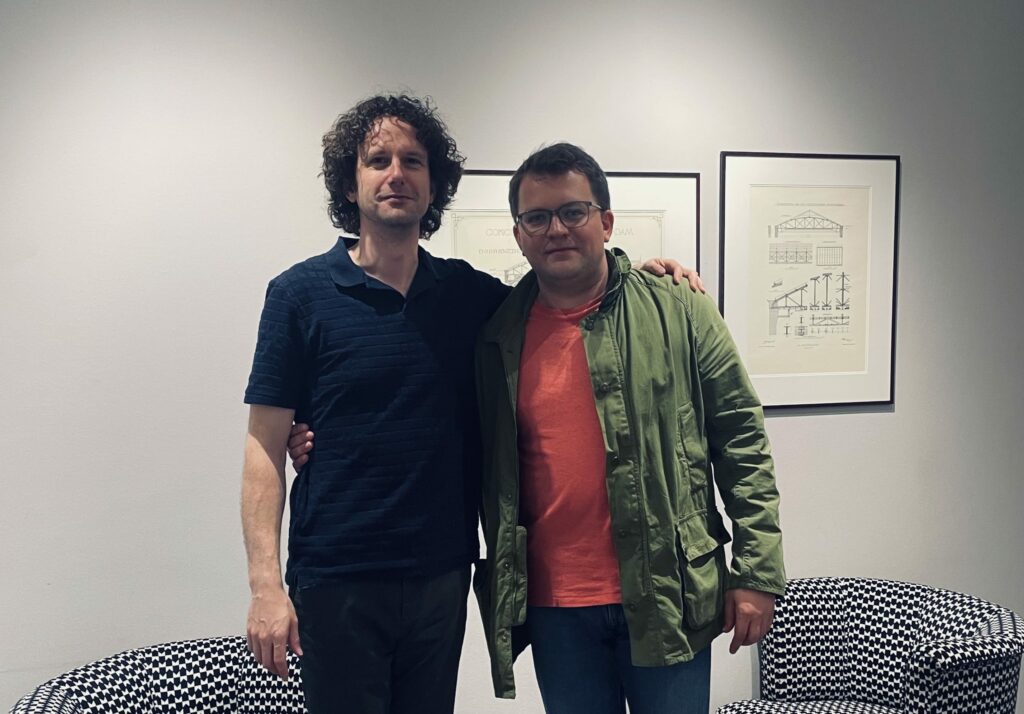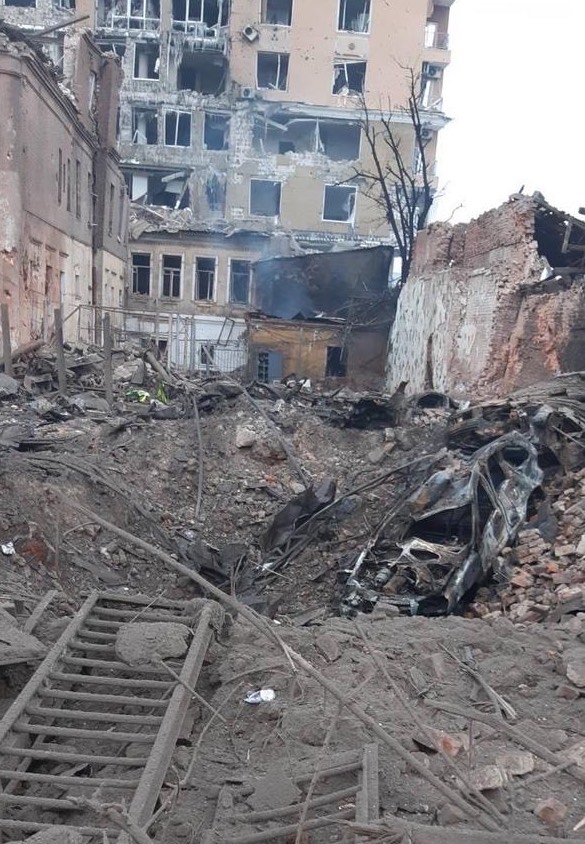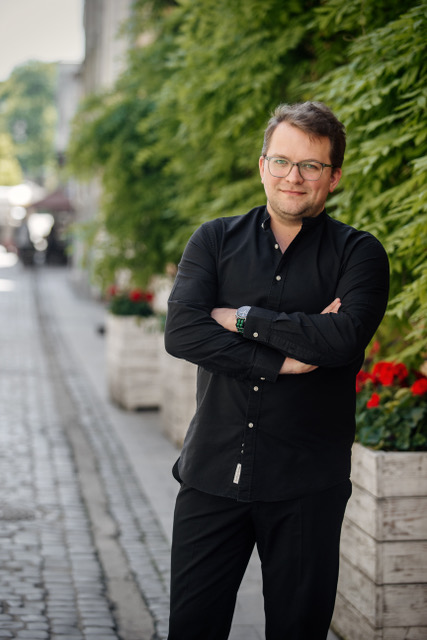Valeriy Sokolov in conversation with Nicholas Collon
20 May 2022

Next month, Aurora will be joined by renowned Ukrainian violinist Valeriy Sokolov for a series of special performances of Tchaikovsky’s Violin Concerto, programmed alongside the ensemble’s latest memorised symphony: Shostakovich’s Ninth.
Aurora’s Principal Conductor Nicholas Collon sat down with Valeriy during preparations for the tour to talk about performing the Tchaikovsky, how the collaboration came about, and Valeriy’s experience of the conflict in Ukraine.
Born in Kharkiv, Valeriy moved to the UK aged 14 to study at the Yehudi Menuhin School, and later the Royal College of Music. After an extended period working across Europe, he had been based back in Ukraine for two years when the conflict began. He left his homeland just over a month ago and is currently living in Germany.
NICK: Hello Valeriy, it’s great to sit down with you and I’m so pleased that we are working together. Can you say a bit about what has led you to be performing with Aurora for this series of concerts?
VALERIY: This will be my first performance with Aurora and I’m really looking forward to it! I grew up in England and I have strong British connections including British management, so I’m happy every time I come to the UK. In many ways this tour feels like a homecoming, and I feel so grateful that even during a terrible time like this, I can continue making music. The situation in Ukraine is so overwhelming and the scale of events is enormous so there’s not much than an individual can do apart from trying to find performance opportunities for my fleeing colleagues, as well help the younger generation of Ukrainian musicians.
Can you tell us a little bit about the past few months?
A few days before Russia invaded, I gave a concert with Lviv International Symphony Orchestrawhere I am currently Artistic Director. The day after the concert was the last opportunity for people to leave the country [before new border restrictions were introduced]. But since none of us could have predicted the unfolding scale of events, no one felt the immediate urge to do so.
The result of the conflict became apparent pretty soon. What I witnessed in the next 14 days was unlike anything I’d known previously – the experience was existential and extremely troubling. A fleeing nation that only a few days earlier had enjoyed a rather good level of life. Women, children, families separated; life plans ruined; innocent lives and homes being taken away by air bombs and artillery; everything changing from one minute to the next.

Over 2000 residential buildings in Kharkiv, my very own home city, destroyed. This in the city previously regarded as the cleanest and most well-functioning place to live in the country! The country’s infrastructure was completely paralysed and there were 30 kilometre lines of women and children at the national borders seeking to flee the country. During those first days it seemed all of my worst fears were coming true.
There’s been a lot of discussion in the UK about the rights and wrongs of playing music by Russian composers in the current climate. How do you feel about playing the Tchaikovsky concerto at the moment?
From the beginning of my life in professional music almost 20 years ago my horizons have extended beyond my native country. I am lucky that whilst my working life in Ukraine has been upended by the war, the conflict hasn’t affected the international part of my career. Happily this at least this gives me a chance to support others who have been less fortunate – at the moment I’m helping to support five Ukrainian families living in my neighbourhood in Germany, including my very own.
I think now more than ever one should be extremely careful with statements of any kind, and just do what’s required as a human being to support those in need as much as possible and restore some kind of inner balance. Making judgments on composers of the past according to their nationality is not what the European cultural scene wants, and that must be respected.
Personally I’ve always expressed my patriotism in practical actions rather than loud statements. In my opinion the important part of this unfolding scenario is: as a new country, after the current conflict, we must re-boot our cultural consciousness and take the example of nations with a highly-developed sense of their national culture. We need to respect and make Ukrainian culture contemporary and market-worthy, instead of the current ex-Soviet model which to me seems illusionary.
In this respect it’s hugely beneficial that so many fleeing Ukrainian musicians have been so warmly welcomed by Western European concert promoters, orchestras and musical institutions. This kind of dialogue is going to be crucial in rebuilding our own cultural scene after the war, and my advice would be to concentrate on that rather than try to dictate repertoire choices to those in more established countries.

We don’t tend to hear much Ukrainian music in the UK, are you able to recommend any composers?
Valentyn Silvestrov is probably one of the best-known Ukrainian composers internationally – he’s written nine symphonies, lots of chamber music and is now living in Berlin. I have performed his second violin concerto in Weimar in 2018 with the composer in the audience. My very favourite Ukrainian composer is Yevhen Stankovich. His music is also really important – his 2015 concerto [dedicated to Sokolov] is a meditative elegy that speaks so strongly during this war. I think British audiences would appreciate this music very much.
How are you finding the preparations for the tour?
I want to get on with music right now as it is the best thing to do for now, at least mentally. Watching news coverage of the war all day long and being able to do almost nothing about it is awful. Materially speaking I have felt the war in a direct way by having my apartment bombed (see image above) and a house outside the city centre partly destroyed. Of course these things are completely insignificant compared to the many human tragedies playing out in Ukraine as we speak.
I am grateful that despite all I am alive and playing, and even more grateful then ever for various opportunities to minimize this personal desperation. In this case the thank you goes to the wonderful Aurora Orchestra and to you for this invitation.
Valeriy Sokolov performs Tchaikovsky’s Violin Concerto with Aurora Orchestra in Suffolk (9 June; The Apex, Bury St Edmunds), Germany (12 June; Kölner Philharmonie) and London (24 June; Southbank Centre’s Royal Festival Hall).
